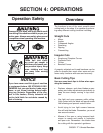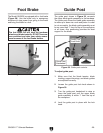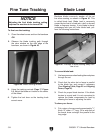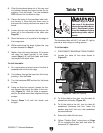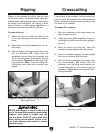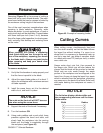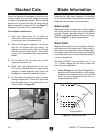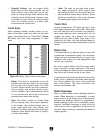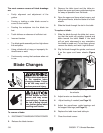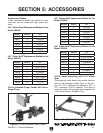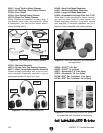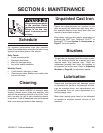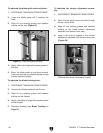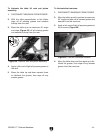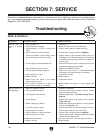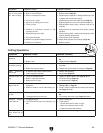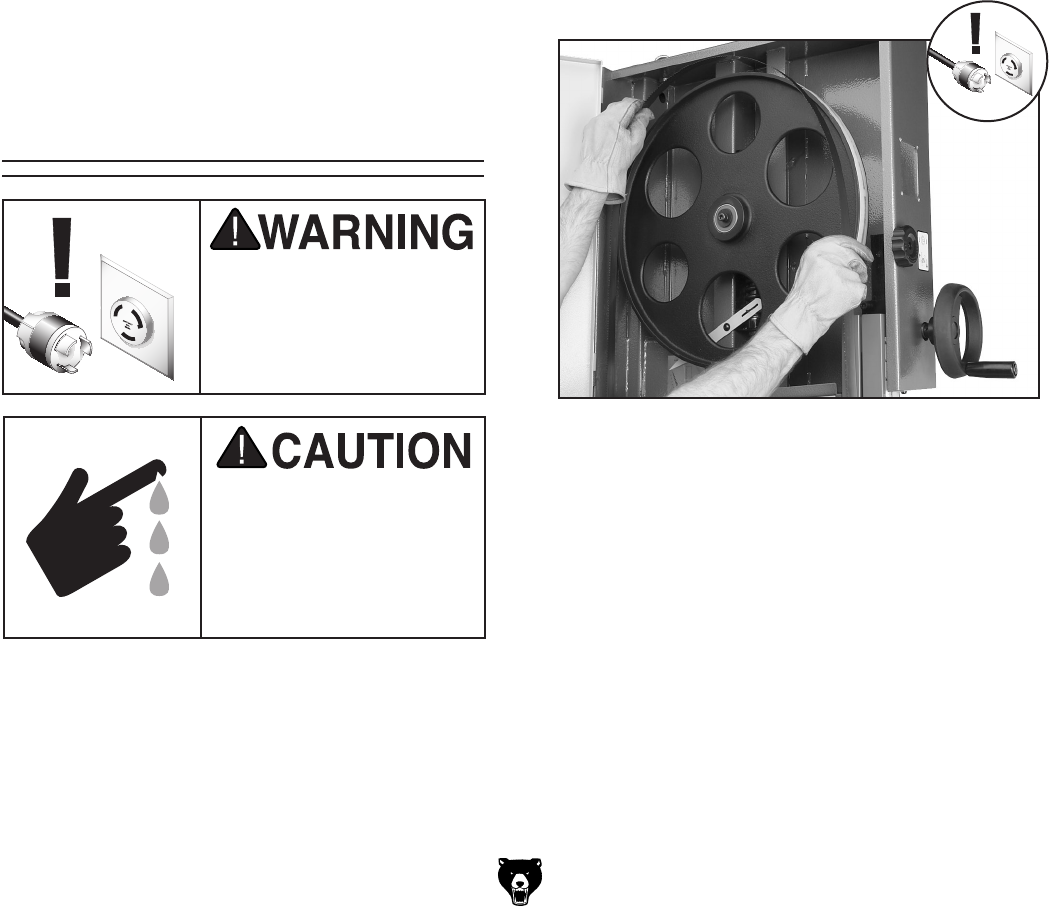
-36-
G0636X 17" Ultimate Bandsaw
The most common causes of blade breakage
are:
• Faulty alignment and adjustment of the
guides.
• Forcing or twisting a wide blade around a
curve of short radius.
• Feeding the workpiece into the blade too
fast.
• Tooth dullness or absence of sufficient set.
• Incorrect tension.
• Top blade guide assembly set too high above
the workpiece.
• Using a blade with a lumpy or improperly fin
-
ished braze or weld.
• Continuously running the bandsaw when not
in use.
Blade Changes
To remove a blade:
1. DISCONNECT BANDSAW FROM POWER!
2. Release the blade tension.
Always disconnect power
to the machine when
changing blades. Failure
to do this may result in
serious personal injury.
All saw blades are dan-
gerous and may cause
personal injury. To reduce
the risk of being injured,
wear leather gloves when
handling saw blades.
3. Remove the table insert and the table pin.
Adjust the upper and lower guide bearings as
far away as possible from the blade.
4. Open the upper and lower wheel covers, and
with gloved hands, slide the blade off of both
wheels.
5. Slide the blade through the slot in the table.
Figure 49. Typical example of placing blade on
the wheels.
To replace
a blade:
1. Slide the blade through the table slot, ensur-
ing that the teeth are pointing forward and
down toward the table.
Note: If the teeth
will not point downward in any orientation,
the blade is inside-out. Put on heavy gloves,
remove the blade, and twist it right side-out.
2. Slip the blade through the guides, and mount
it on the upper and lower wheels (
Figure
49).
3. Adjust tension as described on Page 21.
4. Adjust tracking if needed (see Page 16).
5. Adjust the upper/lower guide bearings and
the support bearings (see
Page 21).
6. Replace the table insert and table pin.
7. Close the wheel covers.



